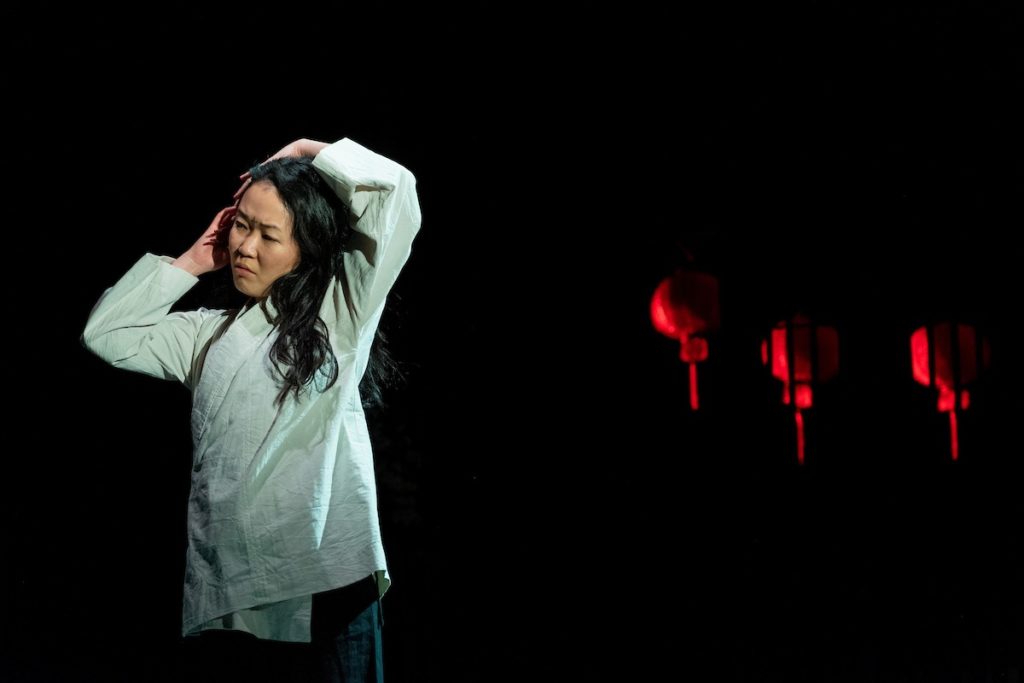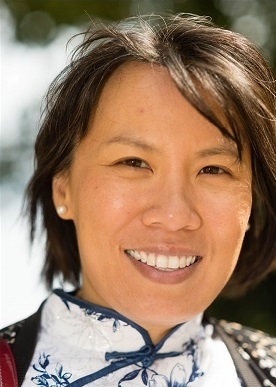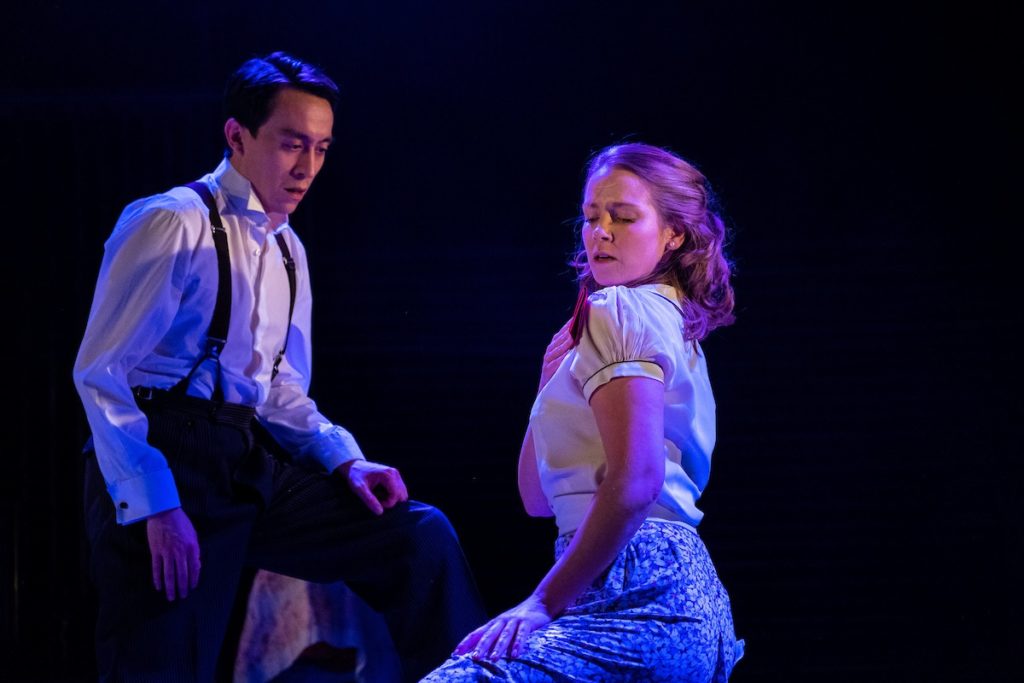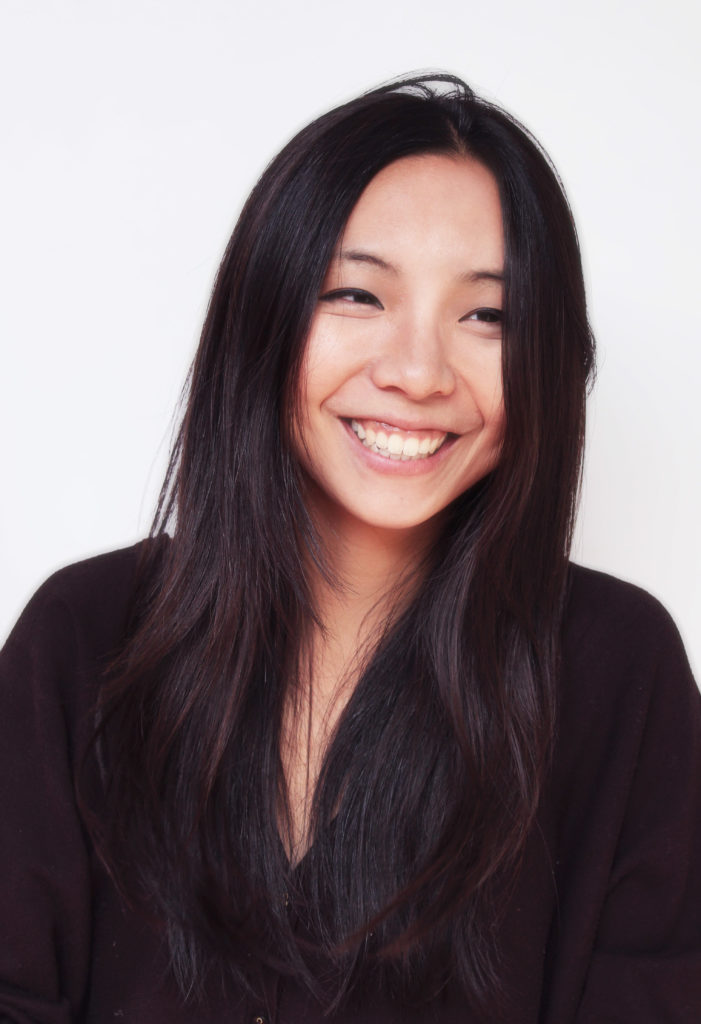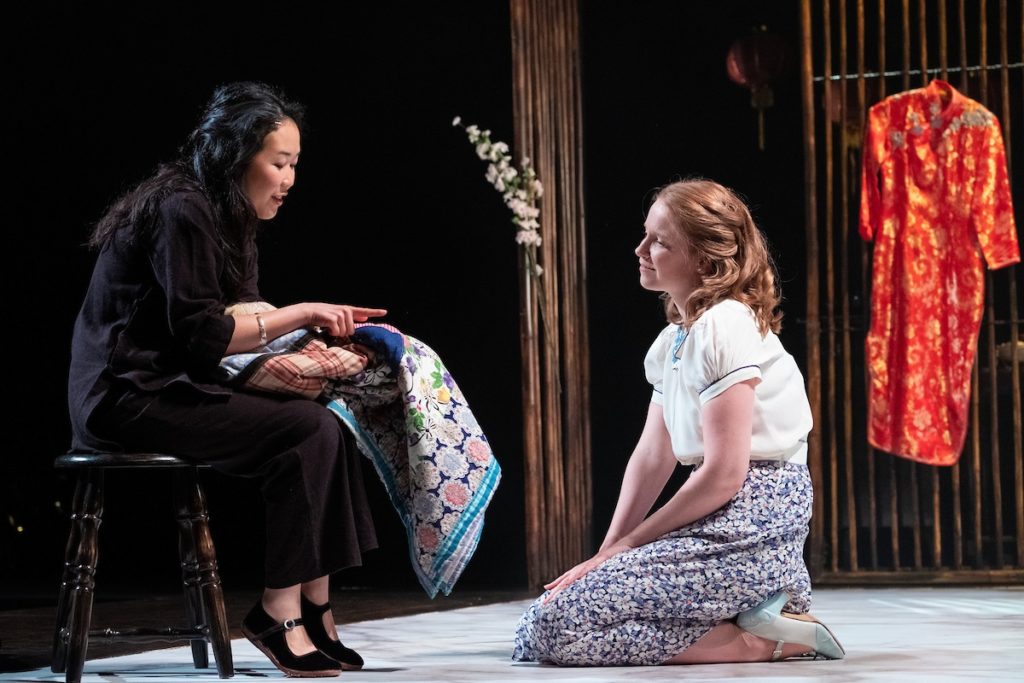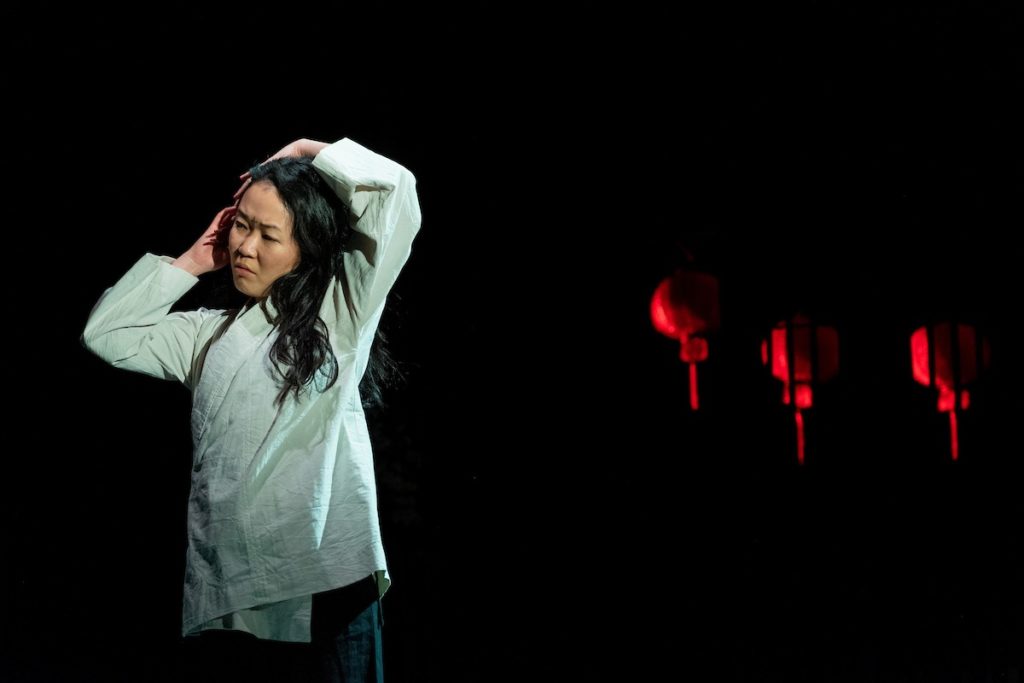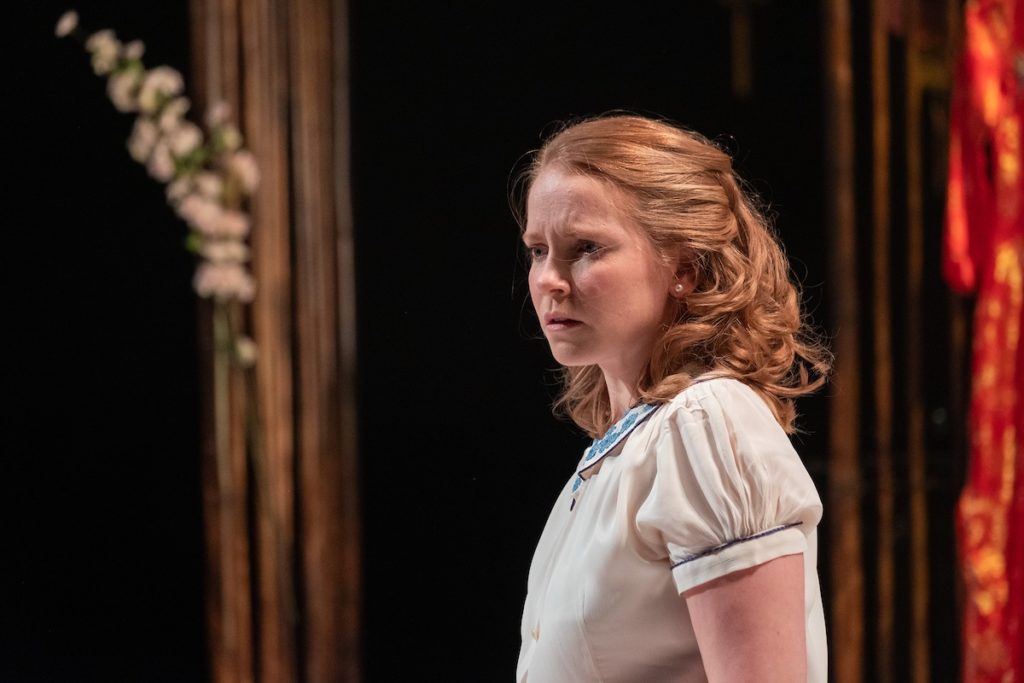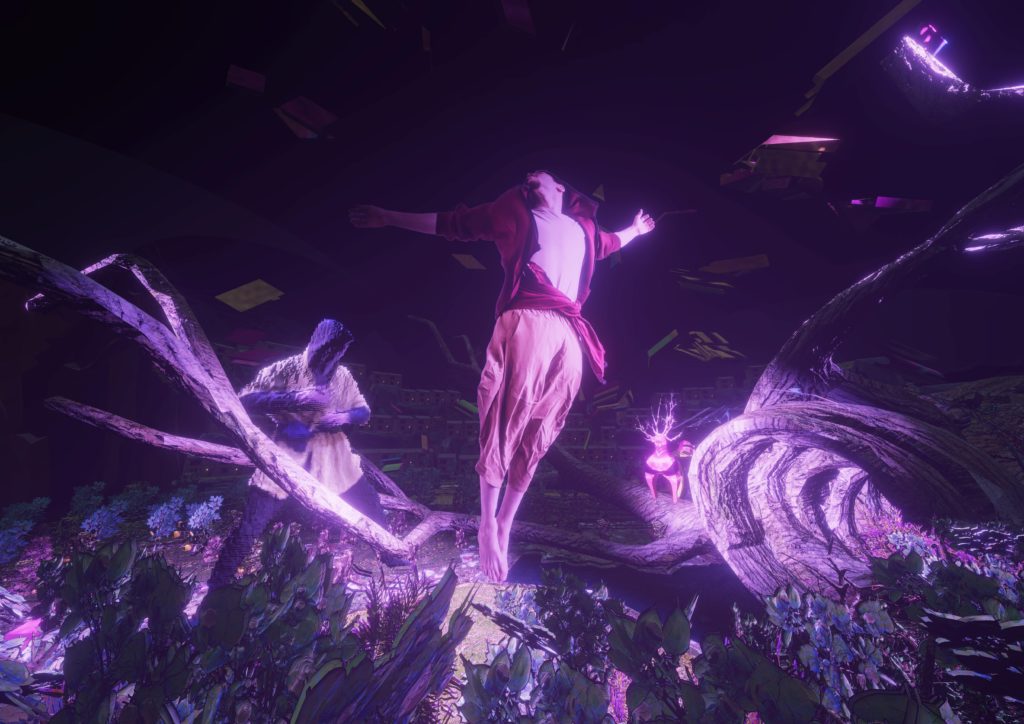
The arty bit
THE future of theatre arrives at York Theatre Royal Studio tomorrow night in the cutting-edge form of Home X, an experimental UK and Southeast Asian collaboration that piches musicians and dancers into a virtual reality world.
Presented by Kakilang (formerly Chinese Arts Now) and Hong Kong partner Don’t Believe In Style and soon to open the Kakilang Festival 2023 in London, An-Ting Chang, Ian Gallagher and Donald Shek’s show combines theatre and music, gaming and virtual reality technology, live performance and audience participation. Soprano Colette Wing Wing Lam and actor gamer Mia Foo play their part too.
After tech rehearsals all this week, tomorrow and Saturday’s previews at a reconfigured Theatre Royal Studio, with 270-degree widescreen projections on three sides and the audience in the middle, can be followed online worldwide too. Further live performances will follow at the Barbican in London later this month.
Created in tandem with technologists and artists in London and Hong Kong, Chang, Gallagher and Shek’s three-dimensional world can be joined by digital audience members as avatars.
Live performers in York (Si Rawlinson) and Hong Kong (fellow choreographer-breakdancer Suen Nam) will be captured as 3D images by depth-sensing cameras and then added to the world. In-person audience members in both locations will see one performer live in the venue, the other half as 3D projections on the widescreen.
After winning Arts Council England’s Digital Culture Award for storytelling, director, composer and Kakilang artistic director Chang, creative technologist Gallagher and architect in 3D design Shek are inviting audiences to “witness the future of live performance”, first in York.
“In Home X, we’re using technology as a form of artistic expression to create a new way of experiencing and telling stories,” says An-Ting. “Through this project, we aim to explore the potential of technology to bring people together and transcend physical boundaries.
“The remote audience will actively participate in the game, while the live audience witnesses these different realities intersecting in various ways. We aim to create a powerful and engaging experience that brings people together in a meaningful way.”
Home X explores the concept of home while celebrating the power of connection and togetherness in the belief that this show has the potential to revolutionise the way people experience theatre through fusing live performance with gaming technology, and “seeing where this technology can take us in the future”.
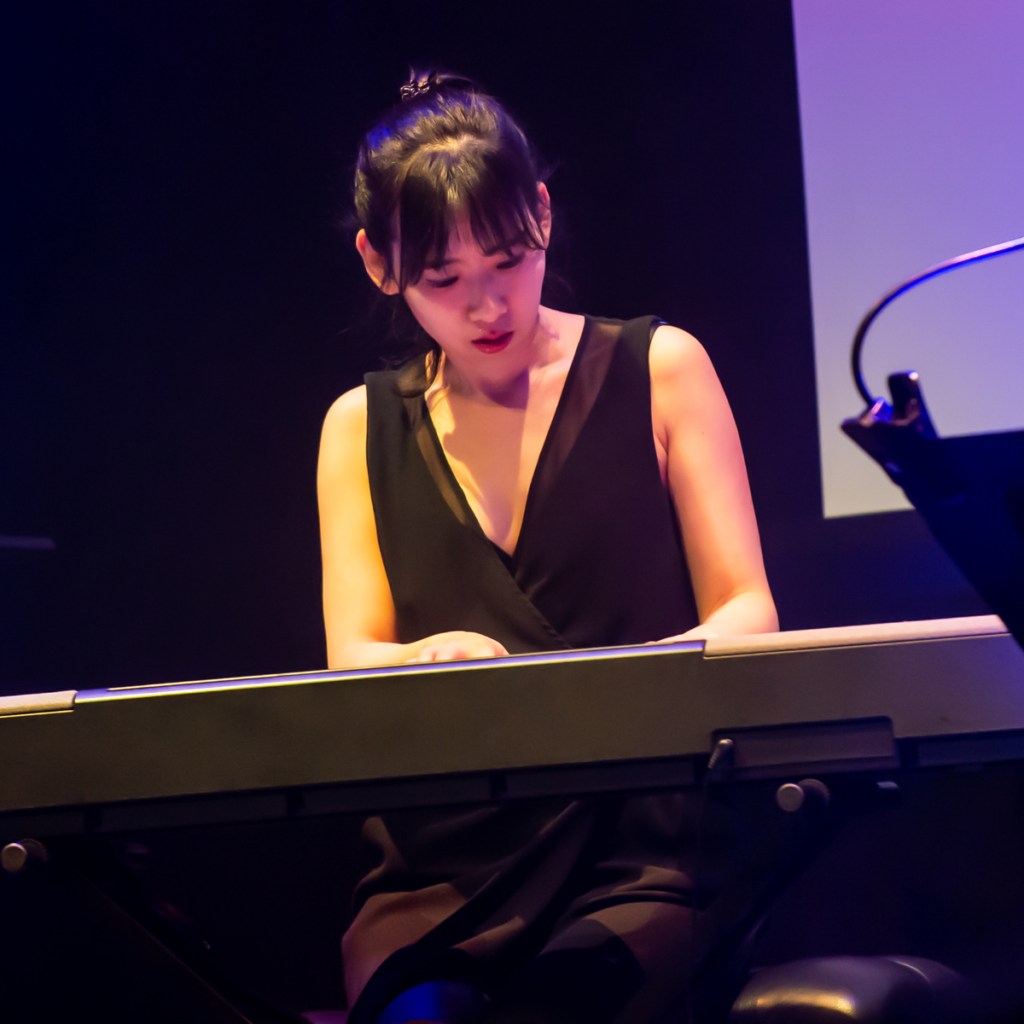
“The two dancers have only ever ‘met’ on the VR headset; I’ve only ‘met’ Suen online, but what’s incredible about technology is that you can reach out to people you can’t meet physically,” says An-Ting. “It opens your eyes because there must be things you can learn from each other, from each other’s worlds, when you’re working in different spaces.”
An-Ting first brought a show to York Theatre Royal in February 2020, just before the pandemic lockdowns, presenting Overheard in the theatre foyer, where the audience used headphones to eavesdrop on family discussions (“because they often take place in cafés”).
“It’s lovely to be back here, doing Home X in a co-commission with York Theatre Royal as one of the partners,” she says. “After we did the digital theatre show Every Dollar Is A Soldier online during lockdown, where we used the gaming engine too, that show became very important for Home X, where we wondered how a digital audience could really engage with a live performance, choosing an avatar and taking part in a promenade performance where you can really feel yourself jumping around in the space and engaging with other avatars. For those in the Studio, you can turn it into a theatre people couldn’t imagine.”
An-Ting has a background is both science and art with a degree in Chemistry from National Taiwan University and a MMus and PhD in performance from the Royal Academy of Music.
“I came to the UK 14 years ago, first to study at the Royal Academy as a concert pianist, and afterwards went to Germany to more studies, and then came back to do a PhD at the Royal Academy, looking at how to bring piano and theatre together,” says the director, who has since put those studies into practice by combining different media, music, physical theatre and technology, while also travelling hither and thither as a concert pianist.
Where is ‘home’ for Taiwan-born An-Ting? “Home X is my personal story. Coming here 14 years ago, ‘home’ for me is confusing. Even after 14 years, I can still feel quite foreign but when I go back to Taiwan, I also feel foreign,” she says.
“Because ‘home’ is such a universal subject, I also interviewed lots of people about how they feel about ‘home’. People who had to leave Ukraine and Iraq. ‘Home’ is complicated but important to everyone, and I wanted to share those stories through Home X.”
Brought up in the Taiwanese countryside, An-Ting’s next move will be to move into the English countryside, a new home.
Home X, York Theatre Royal Studio, tomorrow (10/2/2023) and Saturday, 7.45pm. Box office: 01904 623568 or yorktheatreroyal.co.uk. Online: homexvr.com.
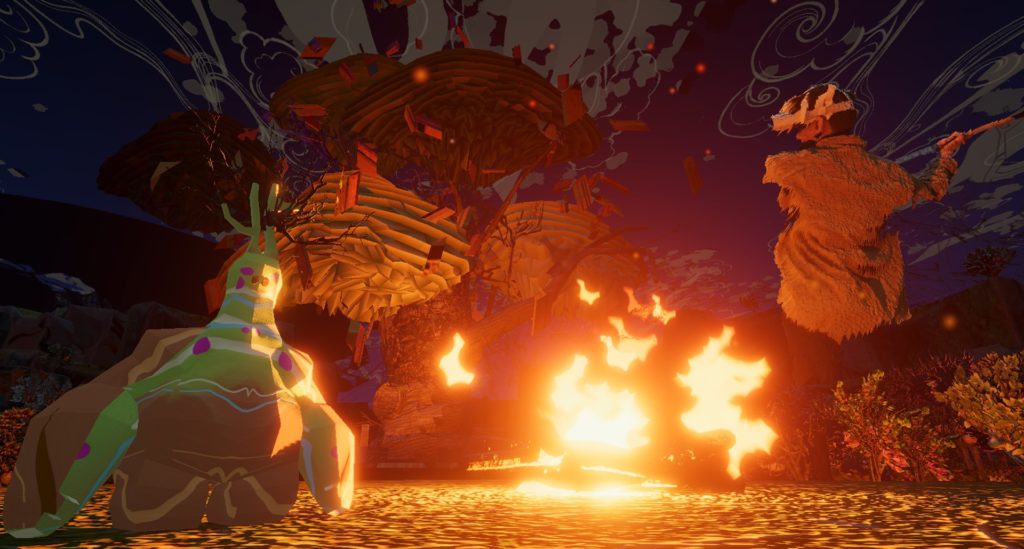
The science bit
IN Home X, live on stage in the UK and Hong Kong, depth-sensing cameras capture 3D video of the performers, using infrared light to convey the shape and movement of the performers’ bodies in real time.
The live audience will watch as they are digitised and streamed into the 3D world. This world will come alive for the audience through a 270-degree widescreen projection, with a live in-game camera following the digitised performers, the digital audience and the other creatures of the world.
Home X uses the gaming engine Unity to create a three-dimensional, virtual world. The digital audience members can engage fully with the performance by entering the virtual world as avatars. They may interact with other audience members and the performers using gestures and emojis, and even play a role in driving the story forward.
The use of bespoke streaming technology allows for a lag of less than half a second between the UK and Hong Kong performers, making it feel as though they are truly performing together in the same space.
Copyright of The Press, York

